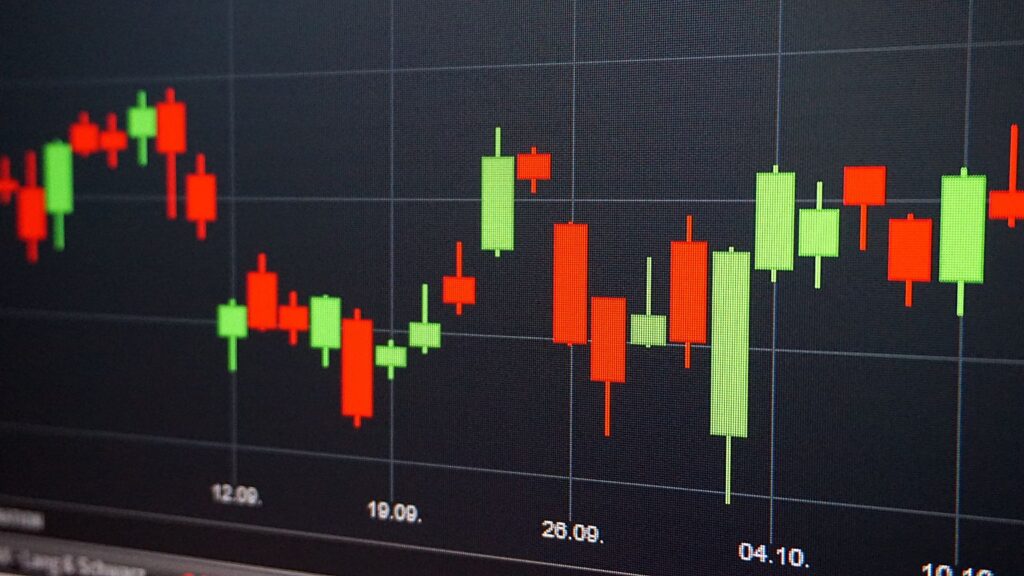Is binary trading considered gambling?

Is Binary Trading Considered Gambling? A Detailed Analysis
- Is Binary Trading Considered Gambling? A Detailed Analysis
- Understanding Binary Trading
- Key Differences Between Binary Trading and Gambling
- Arguments for Considering Binary Trading as Gambling
- Arguments Against Considering Binary Trading as Gambling
- How to Approach Binary Trading Responsibly
- Conclusion
Binary trading has gained immense popularity in recent years, with traders drawn to its simplicity and potential for high returns. However, a long-standing debate persists: is binary trading considered gambling? This article explores the nature of binary options trading, comparing it to gambling, traditional investing, and exploring its risks and rewards.
Understanding Binary Trading
Binary trading, also known as binary options trading, is a financial instrument where traders predict whether the price of an asset will rise or fall within a predetermined time frame. If the prediction is correct, the trader earns a fixed profit; if incorrect, they lose their invested amount. The "binary" nature of this trade (win or lose) is what makes it attractive to many traders.
Binary options are commonly traded on assets like stocks, commodities, forex, and cryptocurrencies. Traders use different strategies, technical indicators, and market analysis to make informed decisions. However, because of its "all-or-nothing" approach, many compare it to gambling.
Key Differences Between Binary Trading and Gambling
While binary trading and gambling share similarities, such as risk and uncertainty, key differences distinguish them:
1. Element of Skill vs. Pure Luck
- Binary Trading: Requires market analysis, understanding of economic indicators, and strategic decision-making. Traders use tools like trend analysis, support and resistance levels, and economic news to make informed predictions.
- Gambling: Relies heavily on luck, with minimal influence from skill or external factors. While strategies exist in games like poker, most casino games are purely chance-based.
2. Market Influence vs. Random Outcomes
- Binary Trading: The outcome of a trade is influenced by market forces, supply and demand, global events, and economic policies.
- Gambling: The outcome is predetermined by odds, probability, and, in some cases, a house edge (e.g., in casino games, slot machines, or roulette).
3. Regulatory Oversight
- Binary Trading: Regulated in many jurisdictions by financial authorities such as the U.S. Commodity Futures Trading Commission (CFTC) and the European Securities and Markets Authority (ESMA). Licensed brokers follow strict guidelines.
- Gambling: Regulated under gaming laws, with rules varying widely across regions. Online casinos operate under gaming licenses rather than financial regulations.
4. Risk Management Strategies
- Binary Trading: Traders use risk management tools like stop-loss orders, diversified trading strategies, and money management techniques.
- Gambling: Most gambling activities lack structured risk management beyond bankroll limitations.
Arguments for Considering Binary Trading as Gambling
Despite the distinctions, many argue that binary options trading resembles gambling due to the following reasons:
- High Volatility and Speculation: Binary options trading is highly speculative, and even experienced traders can lose money quickly.
- Short-Term Nature: Most binary options expire within minutes or hours, making it difficult to conduct deep analysis.
- Fixed Odds and Returns: Since profits and losses are predefined, some compare it to betting on a coin flip.
- Unregulated Brokers and Scams: The binary options industry has had fraudulent brokers, misleading advertising, and unethical practices, leading some to believe it operates like an online casino.
Arguments Against Considering Binary Trading as Gambling
On the other hand, many experts and traders argue that binary trading is not gambling due to the following factors:
- Market Research and Strategy: Successful traders rely on technical and fundamental analysis rather than blind luck.
- Professional Trading Approach: Many professional traders incorporate binary options into broader investment strategies.
- Regulated Platforms: Licensed brokers operate under financial regulatory authorities, ensuring transparency.
How to Approach Binary Trading Responsibly
If you are interested in binary trading, consider the following best practices to minimize risks and improve your trading approach:
- Choose a Regulated Broker – Always trade with licensed platforms to avoid scams and ensure compliance with financial laws.
- Educate Yourself – Learn about market trends, trading strategies, and risk management techniques.
- Start with a Demo Account – Before investing real money, practice trading with a demo account.
- Set a Budget – Never trade with money you cannot afford to lose.
- Avoid Emotional Trading – Make data-driven decisions rather than emotional reactions.
- Diversify Your Trades – Avoid putting all your investments in one asset or trade.
Conclusion
So, is binary trading considered gambling? The answer depends on how it is approached. If done recklessly, without knowledge, and purely based on chance, it can resemble gambling. However, when practiced with proper research, risk management, and strategy, binary trading aligns more with financial speculation than pure gambling.
For those interested in trading, the key takeaway is to treat binary options with the same caution and preparation as any financial market. Educate yourself, use regulated platforms, and avoid the lure of "get-rich-quick" schemes.
Ultimately, the distinction between gambling and trading lies in the approach: while both involve risk, informed decision-making in trading separates it from mere chance-based gambling. By understanding these differences, traders can engage in binary trading more responsibly and with a greater chance of success.
Leave a Reply

Related content